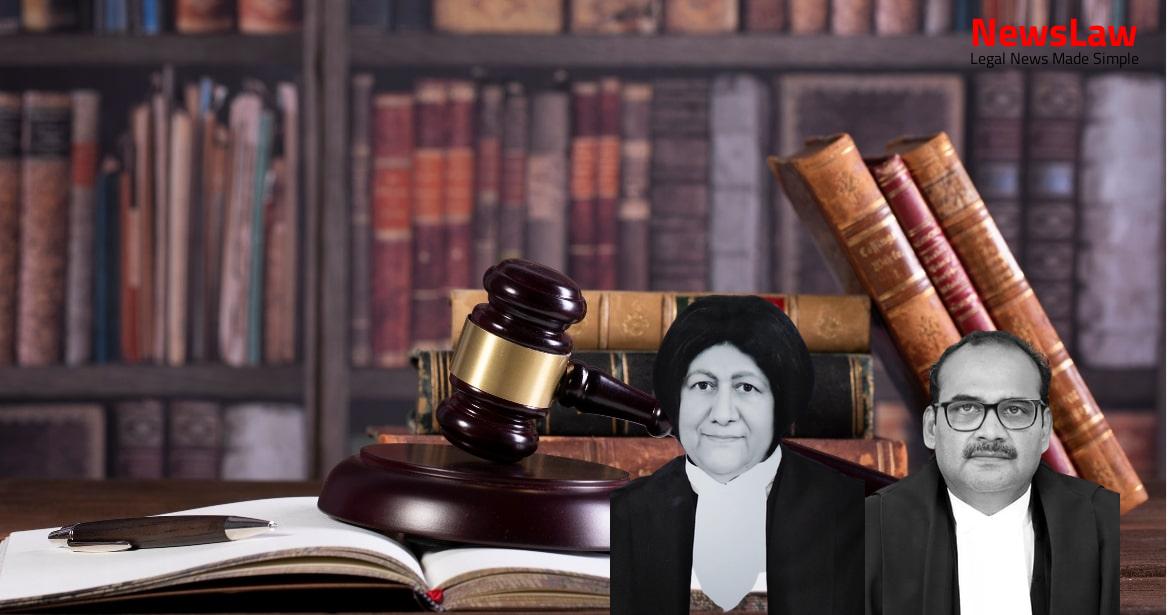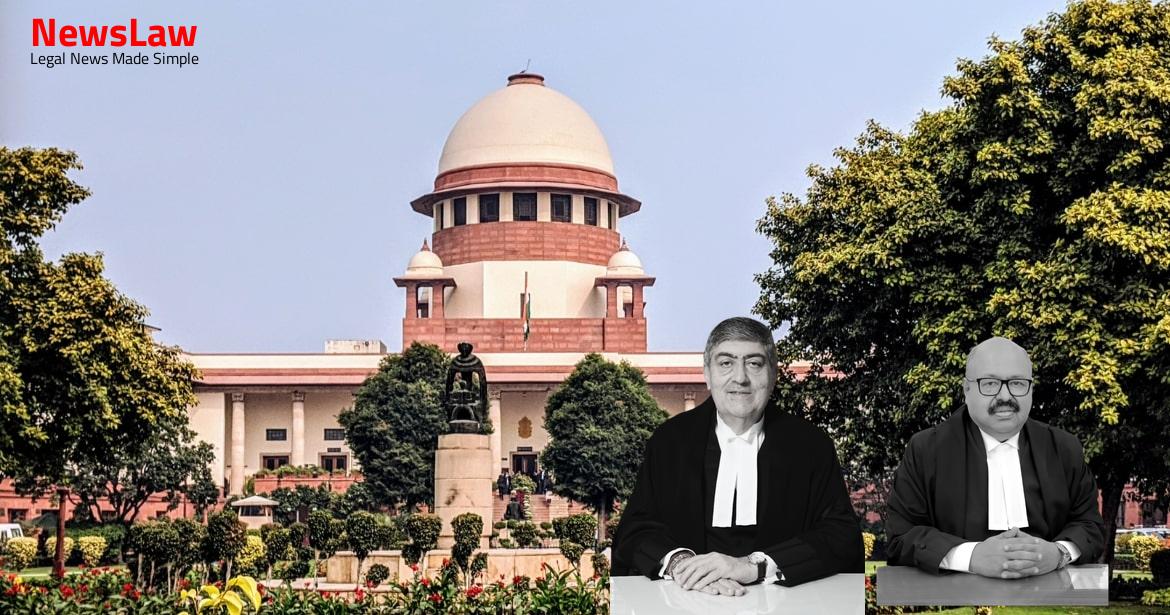Explore the critical legal analysis of filing separate appeals in cases involving multiple decrees. The court’s examination of procedural defects and the application of res judicata sheds light on the importance of adhering to court procedures. Stay informed on the nuances of court rulings in multi-decree cases.
Facts
- Consolidated suits were disposed-off by a common judgment dated 16.04.2008, with separate decrees drawn on 30.04.2008.
- Common issues were framed by the Trial Court for the disposal of both suits with the same evidence.
- The present appeal arises from the judgment dated 04.07.2018, passed by the High Court in First Appeal No.50 of 2008.
- Suit No.411 of 1989 was partly decreed in favor of respondent no.2, while Suit No.419 of 1993 was dismissed.
- Appellant filed First Appeal No.50 of 2008 challenging both decrees.
- Respondents sought a mandatory injunction against the appellant for removing and demolishing walls on the passage and restoring it to its original width.
- Appellant filed CLMA No.4365 of 2008 seeking permission to file a single appeal against both decrees.
- The first appeal was admitted by the High Court, and time was granted for objections and rejoinder.
- Both suits were consolidated by a consent order dated 18.08.2006.
- In Suit No.411 of 1989, respondents sought permanent injunction against the appellant, while the appellant in Suit No.419 of 1993 prayed for a permanent injunction against the respondents.
- The High Court dismissed the appeal without passing any order on the CLMA, based on a preliminary objection regarding the maintainability of a single first appeal.
- The Court did not delve into the merits of the case, focusing solely on the applicability of the principle of res judicata.
- Upon reviewing the material and arguments presented by both parties, the appeal was deemed not maintainable due to being barred by res judicata.
- The High Court referenced the full bench judgment of the Allahabad High Court in Zaharia Vs. Dibia & Ors., ALR (1910) Allahabad 51, as well as the case of Narhari & Ors. Vs. Shanker & Ors., AIR 1953 SC 419, which relied on a full bench judgment of the Lahore High Court in the case of Mt. Lachhmi Vs. Mt. Bhulli, AIR 1927 Lahore 289.
Also Read: Analysis of Financial Statements as Acknowledgment in Limitation Act Case
Arguments
- Appellant contested the dismissal of their case based on res-judicata.
- The Court held that separate appeals should have been filed against each decree.
- The failure to file separate appeals led to the application of res-judicata.
- The Court concluded that one appeal against multiple decrees is not permissible under Section 96 of CPC.
- The essence of res-judicata requires independent trials for each suit with no confusion between them.
- The appellant’s cause was deemed foreclosed by res-judicata, leading to the instant appeal.
- Appellant preferred single appeal and paid consolidated court fee instead of separate fees for each decree
- Respondent supports findings in impugned judgment
- Separate court fee should have been calculated for each decree
Also Read: Analysis of Territorial Jurisdiction in Arbitration Transfer Petition
Analysis
- The CLMA seeking permission to file one appeal was not decided by the court.
- Section 96 of CPC allows filing an appeal from a decree by any Court exercising original jurisdiction to the Court authorized to hear appeals.
- The High Court’s approach of not deciding the CLMA and dismissing the appeal based on the preliminary objection was considered incorrect.
- Non-adjudication of the CLMA and upholding the preliminary objection of non-maintainability of one appeal was viewed to cause serious prejudice to the appellant.
- The procedural defect may be curable, but it should not defeat the substantive right of the litigant without affording a reasonable opportunity.
- The High Court should have decided the CLMA, either granting leave for a single appeal or refusing to entertain one appeal against one judgment and two decrees.
- The appellate court must address all issues, considering oral and documentary evidence, and record its findings.
- The value of the first appeal as a valuable right for the appellant was emphasized, allowing for re-appreciation of all facts and laws.
- The findings on the applicability of res-judicata in the impugned order were not sustained as the CLMA application filed by the appellant seeking permission to file one appeal against a common judgment with two separate decrees was not decided.
- The High Court’s approach of dismissing the first appeal, after a decade without deciding the CLMA, effectively deprived the appellant of the right to rectify the defect and be heard on merits.
Also Read: Interpretation of Corporate Guarantor under IBC
Decision
- The appeal is allowed and the matter is remanded to the High Court.
- Request for the High Court to decide CLMA No.4365/2008 before deciding on the preliminary objection of maintainability of one appeal.
- No costs to be imposed.
Case Title: M/S. RAMNATH EXPORTS PVT. LTD. Vs. VINITA MEHTA (2022 INSC 658)
Case Number: C.A. No.-004639-004639 / 2022



